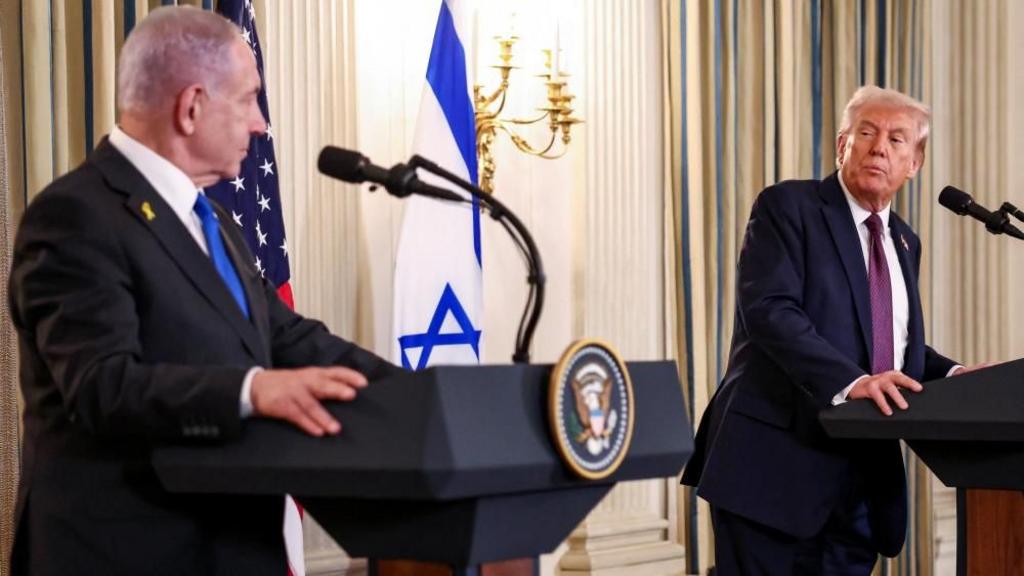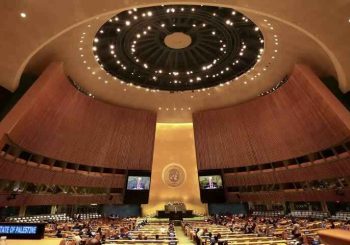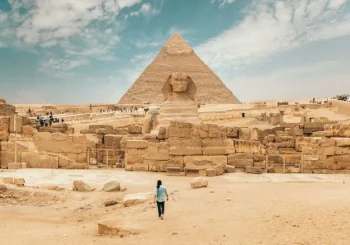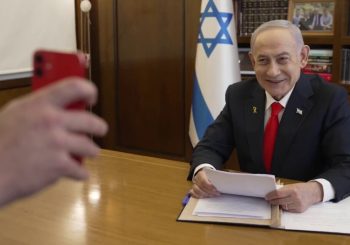US President Donald Trump and Israeli Prime Minister Benjamin Netanyahu declared on Monday that a Gaza peace deal is “beyond very close,” as the White House released in full a detailed 20-point plan that it says could end the conflict immediately if accepted by both sides.
The announcement followed talks between Trump and Netanyahu at the White House, where the two leaders gave their strongest joint endorsement yet for a negotiated end to the war. Trump described the moment as “historic” and said the plan would transform Gaza “from a place of terror into a place of hope.”
But even as the proposal was published, Hamas officials said they had not yet received the plan formally prior to its announcement, raising doubts about whether the group would engage with the framework at all.
The plan also immediately raised concerns among some for proposing that Gaza would be led by a transitional authority supervised by a ‘Board of Peace’ chaired and led by Trump.
Nonetheless, a joint statement by the foreign ministers of Egypt, Qatar, Saudi Arabia, Jordan and the UAE welcomed the announcement and said they were ready to co-operate closely with relevant stakeholders to finalize an agreement and ensure its implementation. The statement was also signed by Turkiye, Pakistan and Indonesia.
Trump and Netanyahu’s message
Standing alongside Netanyahu at a press conference on Monday, Trump insisted that the proposal represented the best chance for peace.
Trump nonetheless also issued a warning: if Hamas refused to comply, the US would back Netanyahu “to do what he has to do” to “destroy” the group.
Netanyahu echoed the message. “If Hamas rejects this plan or does not follow through, we will finish the job,” he said, signalling that Israel was prepared to press ahead with its war on Gaza.
What the 20-point plan says
The White House document outlines a multi-stage roadmap combining immediate humanitarian measures, political restructuring, and long-term economic redevelopment.
Ceasefire and captives
A ceasefire would begin as soon as both parties agree. Israeli forces would withdraw to an agreed line, freezing battlefronts while preparations are made for hostage releases.
Within 72 hours of Israel’s public acceptance, all Israeli captives – alive and deceased – must be returned.
In return, Israel would free 250 Palestinians serving life sentences and 1,700 Palestinians from Gaza detained since October 7, 2023, including women and children. For each Israeli hostage’s remains returned, Israel would release 15 deceased Palestinians’ remains.
Prisoner amnesty and Hamas’s role
Hamas members who disarm and commit to peaceful coexistence would be offered amnesty.
Those wishing to leave Gaza would be granted safe passage to third countries.
Hamas and other factions would have no role in Gaza’s governance.
Governance and oversight
Gaza would be administered temporarily by a technocratic Palestinian committee managing public services.
Oversight would be provided by a new international “Board of Peace,” chaired and led by Trump and including other global figures such as former UK Prime Minister Tony Blair, who has already praised the plan as a bold one, according to the BBC.
This transitional body would oversee funding, reconstruction, and preparations for the Palestinian Authority (PA) to eventually resume control, once reforms are implemented.
Humanitarian and reconstruction efforts
Aid would immediately flow into Gaza, monitored by the UN, the Red Crescent, and neutral agencies.
Infrastructure, hospitals, bakeries, and rubble removal would be prioritised.
The Rafah crossing would be reopened under previously agreed mechanisms.
Security and demilitarisation
All militant infrastructure, including tunnels and weapons factories, would be dismantled.
An internationally funded buy-back and reintegration scheme would ensure weapons are permanently put beyond use.
A temporary International Stabilisation Force (ISF), supported by Arab and international partners, would deploy to Gaza to train Palestinian police and secure border areas with Israel and Egypt.
Israel would progressively hand over occupied areas to the ISF, withdrawing fully once Gaza is deemed secure, while maintaining a temporary security perimeter.
Economic development
A Trump-led economic development plan would be crafted by experts who helped design “modern miracle cities” in the Middle East.
A special economic zone would be established to attract investment and trade.
The plan pledges jobs, infrastructure, and new opportunities for Palestinians in Gaza, while guaranteeing freedom of movement for those wishing to leave or return.
Path to Palestinian statehood
The document does not explicitly set out a path for a Palestinian state, but seems to recognise Palestinian aspirations for self-determination and statehood.
It sets conditions for eventual negotiations between Israel and the Palestinians on a “political horizon” for peaceful coexistence, dependent on PA reforms and the success of Gaza’s redevelopment.
Reactions and obstacles
While Trump and Netanyahu presented the plan as a breakthrough, Hamas has historically rejected frameworks that exclude it from governance, and the demand for complete disarmament is likely to prove contentious.
Regional actors, including Egypt, Qatar, and Saudi Arabia, are expected to play a crucial role in gauging Hamas’ response and determining whether the plan has any chance of being accepted. Analysts also point to the ambitious timelines, such as the 72-hour Israeli captive release, as potential stumbling blocks.
Critics also note that the plan centralises control under an international board led personally by Trump, a move some say risks undermining Palestinian agency.
The White House insists that if Hamas agrees, the killing in Gaza by Israel could end within days. If not, Trump and Netanyahu signalled that Israel, with US backing, would escalate military operations, therefore continuing what is now globally accepted to be a genocide of the Palestinian people by Israel.







Comments (0)